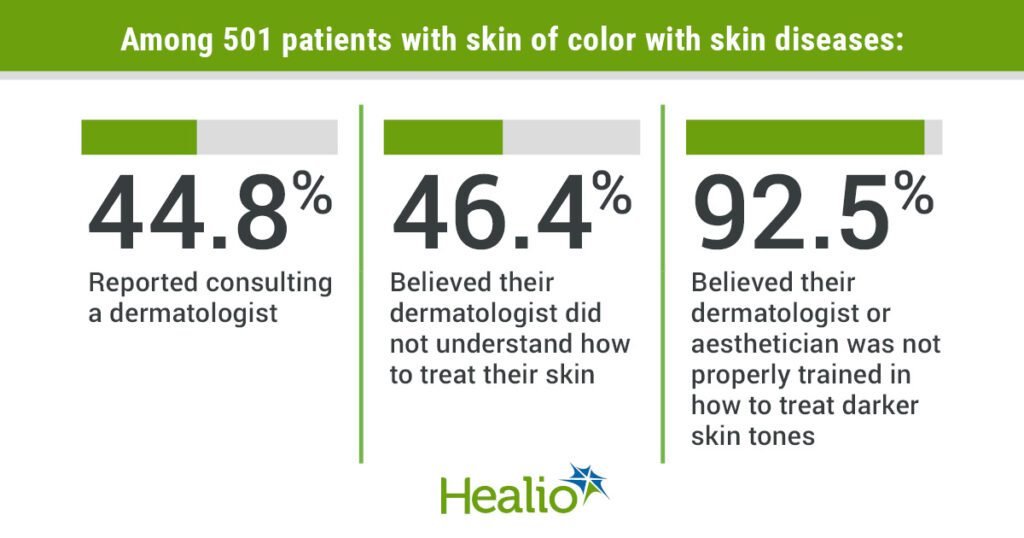Understanding the Dermatological Needs of Individuals with Skin of Color
Posted on October 29, 2023 | 2 min read
Recent findings from a detailed survey highlight significant gaps in dermatological care for individuals with skin of color. The research emphasizes the emotional and psychological impacts of skin conditions on this demographic, revealing deep-seated issues regarding the treatment capabilities of dermatologists.
Key Findings
- Prevalence of Skin Conditions: Approximately 79.6% of respondents reported experiencing bothersome skin issues.
- Perceived Treatment Gaps: A staggering 92.5% felt that their healthcare providers lacked the necessary training to treat darker skin tones effectively.
The Survey Overview
Conducted by Beacon Science in August 2022, the survey explored the experiences of 775 participants who identify as having skin of color. Key aspects evaluated included:
- The severity of skin conditions
- Emotional impacts on mental health
- Access to dermatological care
- Perspectives on skincare products
Emotional Burden and Common Conditions
Among the respondents:
- 85.2% described their skin concerns as moderately to extremely bothersome.
- Over 57.4% indicated their conditions affected their mental health.
Commonly Reported Skin Conditions:
- Discoloration and Post-Inflammatory Pigmentation (69.5%)
- Acne (58.5%)
- Ingrown Hairs (48.1%)
Most individuals with these concerns reported having them primarily on their faces.
Barriers to Treatment
When asked about why they refrain from using skincare products, the responses were telling:
- Price was a barrier for 72.2% of respondents.
- Side effects and lack of information about product efficacy were also significant concerns, affecting 43.6% and 39.3%, respectively.
- A notable 40.9% felt that existing products did not cater to their specific skin needs.
Dermatological Consultations and Misunderstandings
While 44.8% of those surveyed had consulted a dermatologist, a troubling 46.4% believed their dermatologists lacked a proper understanding of how to treat their skin type. Nearly all respondents (92.5%) expressed doubts about the adequacy of training for dermatologists in managing skin conditions for patients with darker skin tones.
The Psychological Impact
Beyond physical discomfort, the survey revealed an alarming psychological toll:
- 67.4% of respondents acknowledged that their condition negatively impacted their emotional well-being.
- Feelings of self-consciousness (59.4%), low self-esteem (41.9%), and embarrassment (38.3%) were prevalent.
- Instances of social media editing to mask skin issues and experiences of bullying were reported.
The Need for Change
Dr. Martina M. Cartwright from Beacon Science emphasized, “These survey results suggest there is a cyclical relationship between visible skin disease, psychosocial burden, and beliefs about dermatologic care. Implementing therapeutic and educational strategies to disrupt this cycle is essential for alleviating both the physical and psychological impacts of skin disease in people of color.”
Conclusion
This pivotal survey underscores the urgent need for enhanced training for dermatologists and increased accessibility to effective skincare solutions tailored specifically for individuals with skin of color. Addressing these concerns can lead to improved emotional and physical health outcomes.
For further reading on dermatological conditions and treatments, visit American Academy of Dermatology or explore articles on the British Journal of Dermatology.
Sources/Disclosures: The study has noted financial disclosures from Dr. Cartwright associated with various companies. For detailed information on other authors’ disclosures, please refer to the original research article.


